Life

Educators and Parents, Sign Up for The Cheat Sheet
Weekly updates to help you use Science News Explores in the learning environment
Thank you for signing up!
There was a problem signing you up.
-
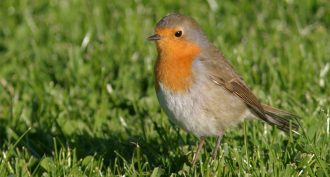 Animals
AnimalsElectronics may confuse a bird’s ‘compass’
Birds use Earth’s magnetic field to help guide them as they migrate. A new study suggests that electromagnetic radiation given off by some electronic devices may act like “noise” and confuse the long-traveling birds.
-
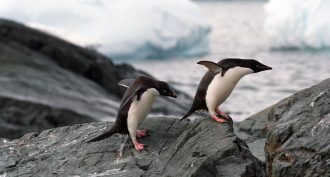 Animals
AnimalsEven penguins get the flu
Scientists have just identified ‘live’ bird flu virus in Antarctic penguins. But the infections may not be novel. There are some signs these germs have been infecting local wildlife for up to 80 years.
By Janet Raloff -
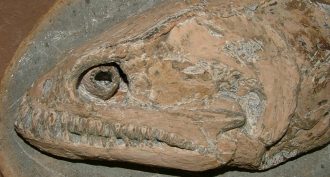 Animals
AnimalsSurprise! Fossils in a flash
By studying how dead tissues decay — or turn to ‘instant’ fossils — scientists are gleaning helpful clues to what ancient life looked like.
By Douglas Fox -
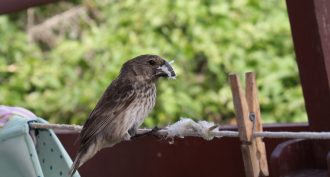 Animals
AnimalsHelping birds doctor their babies
Darwin’s finches will soften their nests by weaving in fibers, such as stray bits of cotton. An observant biologist offered those birds some insecticide-treated cotton and the birds took it, which saved their young from deadly parasites.
-
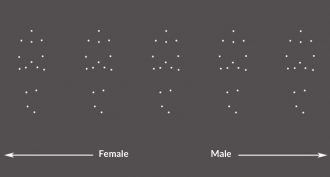 Brain
BrainThe scent of a woman — or a man
Animals unwittingly signal things about themselves by giving off subtle scents. A new study claims the same is true for people.
-
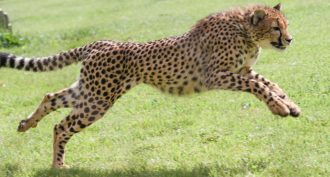 Animals
AnimalsMove over cheetah: Mite sets new speed record
A super-speedy species sprints faster than any other land animal — for its size, a new study finds. Scientists may someday tap this tiny mite’s technique to create robots and other devices that zip around at sensational speeds!
-
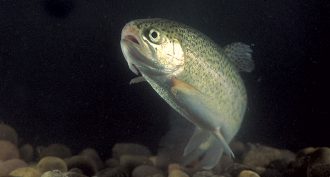 Animals
AnimalsDon’t mess with a frustrated fish
When a trout doesn't get the snack it expected, look out. These fish get aggressive. Sometimes they can defeat even bigger fish.
-
 Health & Medicine
Health & MedicineInfected cutting boards
Germs can hitchhike into the kitchen on meat and many types of produce. A new study finds that some of those germs are particularly nasty. They are immune to the one or more of the drugs doctors would prescribe to wipe out the infection.
-
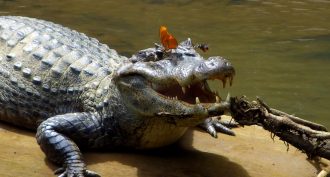 Animals
AnimalsThese insects thirst for tears
In some parts of the world, insects will drop by for a savory beverage. Interestingly, neither a croc — nor a scientist who offered his eyes up to ‘tear-sipping’ bees — seemed bothered much by the freeloaders.
By Janet Raloff -
 Brain
BrainGhosts in your head
Many people see, feel and hear things that aren’t really there — despite how much their brain tries to convince them otherwise.
By Kirsten Weir -
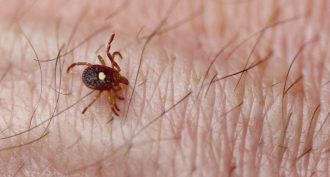 Health & Medicine
Health & MedicineNew ‘Heartland’ disease emerges in U.S. Midwest
A new viral disease causes major pain and flu-like symptoms. At present, no treatment or cure exists.
By Janet Raloff -
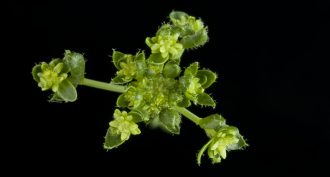 Plants
PlantsWily bacteria create ‘zombie’ plants
Scientists have discovered how some plant pathogens ensure their own survival by transforming flowering plants into strictly leaf-producing ones. These green ‘zombies’ attract insects that the parasites need to help them spread to other plants.